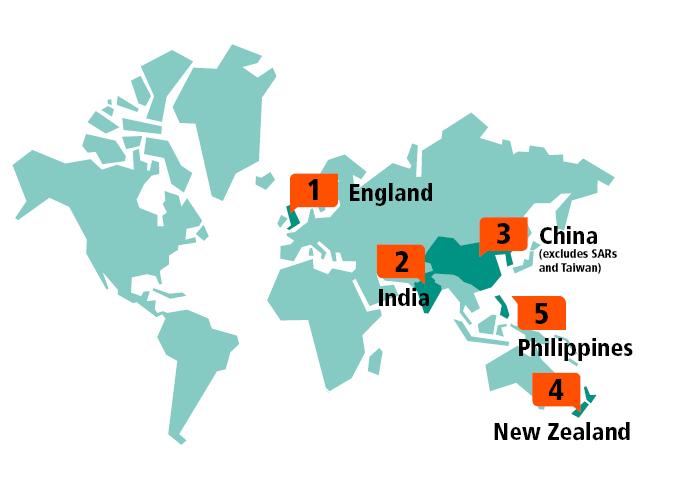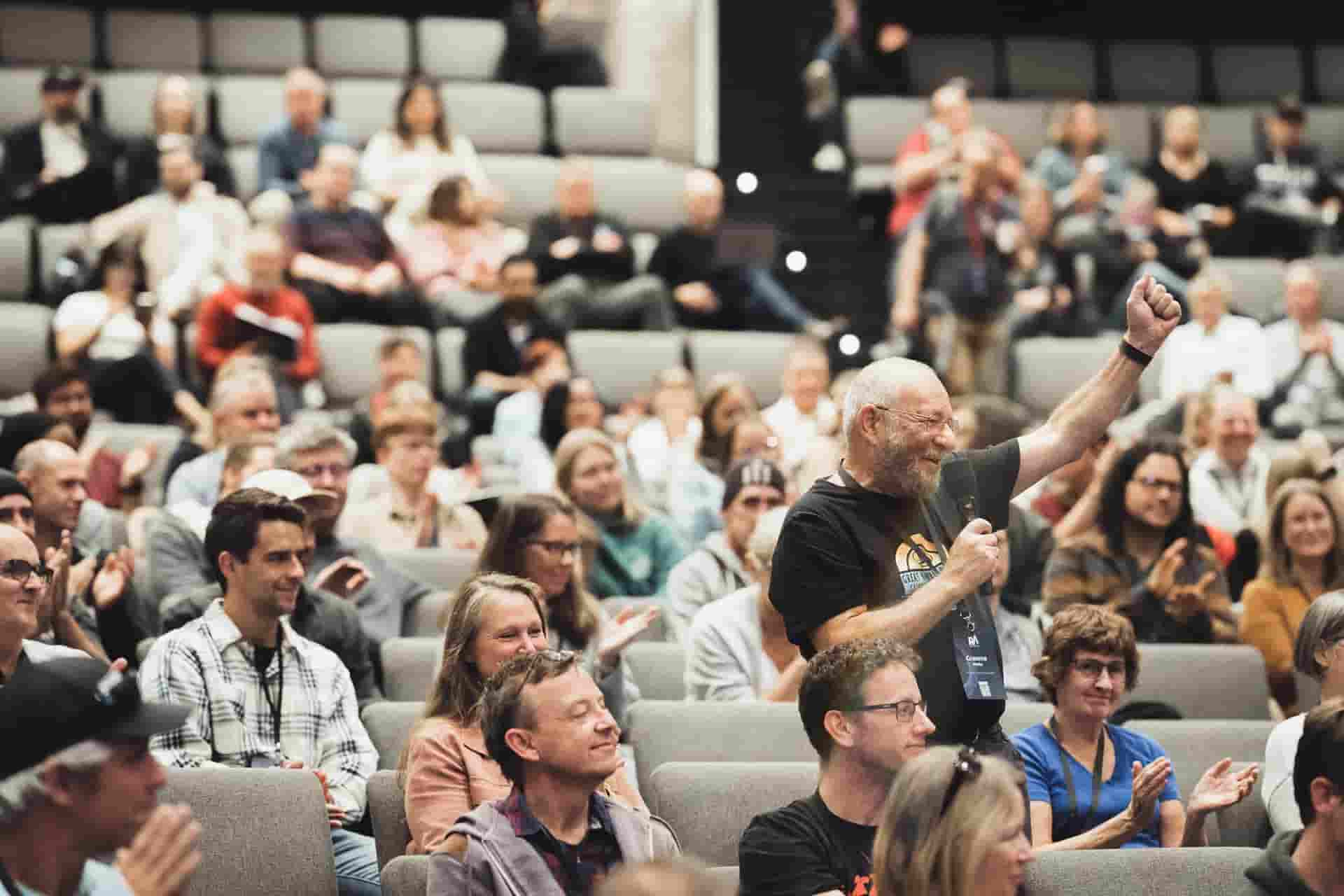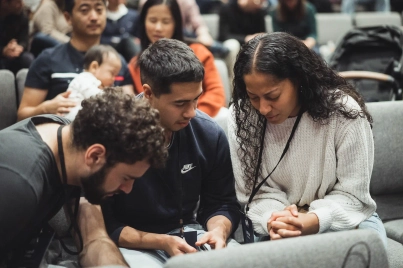The Australian Bureau of Statistics recently released the data for the 2021 Australian census. This data helps us understand the current state of Australia and indicates where Australia may head in the future.
Some have taken the time to understand the changing face of Australia’s religious landscape. As we consider how we reach Australia with the good news of Jesus, there seems to be one area that is notably lacking in our conversations—Australia’s changing cultural and racial landscape. In recent years, there has been a growing awareness in the church, but this conversation is still in its infancy.
For example, the Punjabi language saw the most significant increase in speakers since 2016. A quick Google search reveals one Punjabi church in Australia (with an online presence). How is the Australian Church seeking to reach this growing people group?
The Australian population is changing. This article hopes to stir a conversation, not just identifying some strategic opportunities facing us in the coming years, but how we might begin to reach multicultural Australia. Perhaps unsurprisingly, how we reach multicultural Australia with the gospel is nothing new.
The Statistics
In 2021, just over 7 million people in Australia were born overseas.
Australian Bureau of Statistics (2021), Census
In 2021, just over 7 million people in Australia were born overseas. That’s roughly 27% of the Australian population. Since 2016, the number of people born overseas has increased by 26.3%. While many overseas‑born people are from English‑speaking countries, this has recently changed significantly. Since 2016, we’ve seen more people from India (+47.9%), Nepal (+123.7%), the Philippines (+26.5%), and Vietnam (+17.6%) than any other country. The Australia and India trade deal finalised last year (October 2021) will likely see migration from India increase further.

Perhaps, unsurprisingly, the areas with the highest population born overseas are in urban New South Wales and Victoria. For example, Auburn (in western Sydney) has the highest overseas‑born population, where 61.7% of the local population was born overseas. In contrast, Western Australia has had the highest proportion of people born overseas at 32.2%, compared with Victoria (29.9%) and New South Wales (29.3%).
One of the key health indicators we use at Reach Australia is whether a church reflects its local community. Comparing this data with how the Australian church reflects the changing population would be interesting.
How to Reach Multicultural Australia
As we consider this data, we return to the question: How do we reach multicultural Australia? Let me suggest we need missionary‑like cross‑cultural gospel workers to reach Australia’s changing population.
Many of Australia’s gospel workers are equipped and trained to operate in their own culture. However, we need different approaches and skills to reach people of different cultures. Typically, missionaries spend significant time being equipped and trained to reach people and cultures different to themselves. There are three primary things (not exhaustive) a missionary does:
- Awareness of their own cultural bias
- Learning the language and culture of the people
- Living among and with the people
1. Cultural Awareness
In our Reach Australia Leadership Development Program, we identify one of the key elements of healthy, effective leadership is self-awareness. It’s hard to be an effective leader of others if we don’t first understand ourselves and our impact on those around us and empathise with how others operate. As we seek to reach all of Australia with the gospel, do we understand our culture and its impact on our churches as we seek to serve them towards gospel health and growth? How do we most effectively bring Jesus to those who don’t know him?
Do we understand our culture and its impact on our churches as we seek to serve them towards gospel health and growth?
Missionaries of ages past (and sadly still today) who were not aware of their culture imported their cultural ideas inadvertently into these countries, cultures, and people. Even today, we see their influence in churches around the world. For example, you can go to almost any Chinese evangelical church and find nearly the same traditional liturgy and order adopted from early missionaries. While there may be nothing inherently wrong with this, it highlights how easy it can be to continue tradition and practices unexamined, no matter the culture.
As we talk about frameworks and ecosystems, we must recognise a cultural element in our communication and presentation of these ideas. Furthermore, as we push into practical application, our application of the principles of our framework and ecosystem will reflect our cultural biases.
For example, one of the key principles we promote is “Take responsibility, give responsibility.” How responsibility is taken and given varies from culture to culture. In Confucian cultures, leadership comes through virtue. In The Analects of Confucius, we read, “If you yourself are correct, even without the issuing of orders, things will get done; if you yourself are incorrect, although orders are issued, they will not be obeyed.” This concept emphasises education, experience, and hard work. A fresh graduate from Bible college with little experience and new to an Asian church will find it difficult to exercise leadership without understanding this principle.
Let me make an anecdotal observation of second‑generation ethnic Christians, even gospel workers. By growing up and learning to navigate between their parent’s culture and the culture of their country (e.g. Australia), they are adept at crossing the cultural divide. They can walk into a room, for example, the Reach Australia conference, and receive the content we deliver and understand.
This does not mean they are adept at translating the principles cross‑culturally to their parents’ culture. So, even second‑generation gospel workers will need to develop cultural awareness if they seek to do ministry cross‑culturally, whether to their parent’s culture or a different culture altogether.
2. Language and Culture Learning
The first term for a new missionary (in most mission organisations) is language and culture learning. Depending on the language, the length of time required for dedicated language learning will vary; but by no means is a missionary a master of the language after this first term. This is the beginning of a lifetime of learning the language of the people they seek to reach.
Facebook recently announced a breakthrough AI technology that allows for immediate translation of primarily oral languages (i.e. without a formal writing system). The “Meta researchers believe AI could help solve many communication challenges for speakers of unwritten languages.” However, I suspect there will still be miscommunication because culture is deeply tied to language.
Our culture deeply informs the meaning of our words. We deeply value the work of Biblical exegesis because socio‑cultural details in the Biblical text do not always translate into our primary language. For example, while English often uses one word to speak of ‘love,’ the Greek uses a few more.
Even when ethnic Christians speak and use English, verbally or written, they speak from a cultural context different to ours; often, they do not naturally communicate cross‑culturally. If neither party communicates cross‑culturally, then miscommunication and misunderstandings will be the natural result. Speaking with Ed Grudier and Tim Silberman from Sydney Missionary & Bible College, “It’s about knowing what someone means instead of just what they said.”
Therefore, the task at hand is not simply to translate content and resources into the heart language of our ethnic brothers and sisters. We need to do the humble work of learning the language and culture to serve them best. This may mean a significant investment in resources and time to find people equipped with the language and culture, onboarding them with our framework and principles, and empowering them to serve the multicultural Australian church. The question is, can we? And, will we?
3. Better Together
An effective missionary lives among the people they seek to reach. Church history is filled with monastic communities and missionary compounds that sought to minister to the people around them. There was always a danger that these monasteries and compounds became insular and self‑serving rather than outward‑looking and serving the people around them. To reach multicultural Australia, we must learn from our past and explore a different pathway forward.
While we may never see the vision of Revelation fulfilled in our lifetime, we can strive towards gospel unity across languages and cultures. The 2023 Reach Australia national conference theme is “Better Together”. We want to see churches of every language and culture striving to see all of Australia reached with the gospel. How can we engage our ethnic Christian churches in enriching our framework, principles and models to see thousands of healthy, evangelistic and multiplying churches across Australia?
In a conversation with OMF, it was noted that there is still a tendency among Western approaches to cross‑cultural ministry, beginning from the seeming attraction of the Australian/Western culture. We teach English, establish and develop ministries based on Western leadership principles, and so on. This leads to an imbalanced cultural authority where the Western way seems superior. Can we humbly engage in conversations to discover and empower differing, but biblical, applications of wisdom for the cause of the gospel?
We offer a great richness as we seek to see thousands of healthy, evangelistic, multiplying churches. How much richer would the Australian Church be if we invited our ethnic-specific churches to help inform what healthy, evangelistic, multiplying churches look like in a changing Australia?
Our Asian and sub‑continental churches would enrich our ideas of what it means to be in community. Our African and Islander churches would challenge our ideas of what it means to love God. Our Brazilian churches would challenge our ideas of what it means to be on mission. None of these cultures hold an exclusive claim on how a healthy church ecosystem is expressed or practised. Still, there is much we can learn from one another if we all stop to learn from each other.
Next Steps
We should be under no illusions that this is a simple task resolved with good resources, strategic investments, and finding the right people. To pursue this objective will require humble partnerships, generous and sacrificial service, and intentional efforts to connect with people different to us.
Will you humbly partner with us as we explore how to reach a multicultural Australia? Will you help us through generous and sacrificial service to reach this goal? Will you seek to connect us with people different to us to reach the nations in Australia? Will you join us as we seek to reach all of Australia with the gospel?





